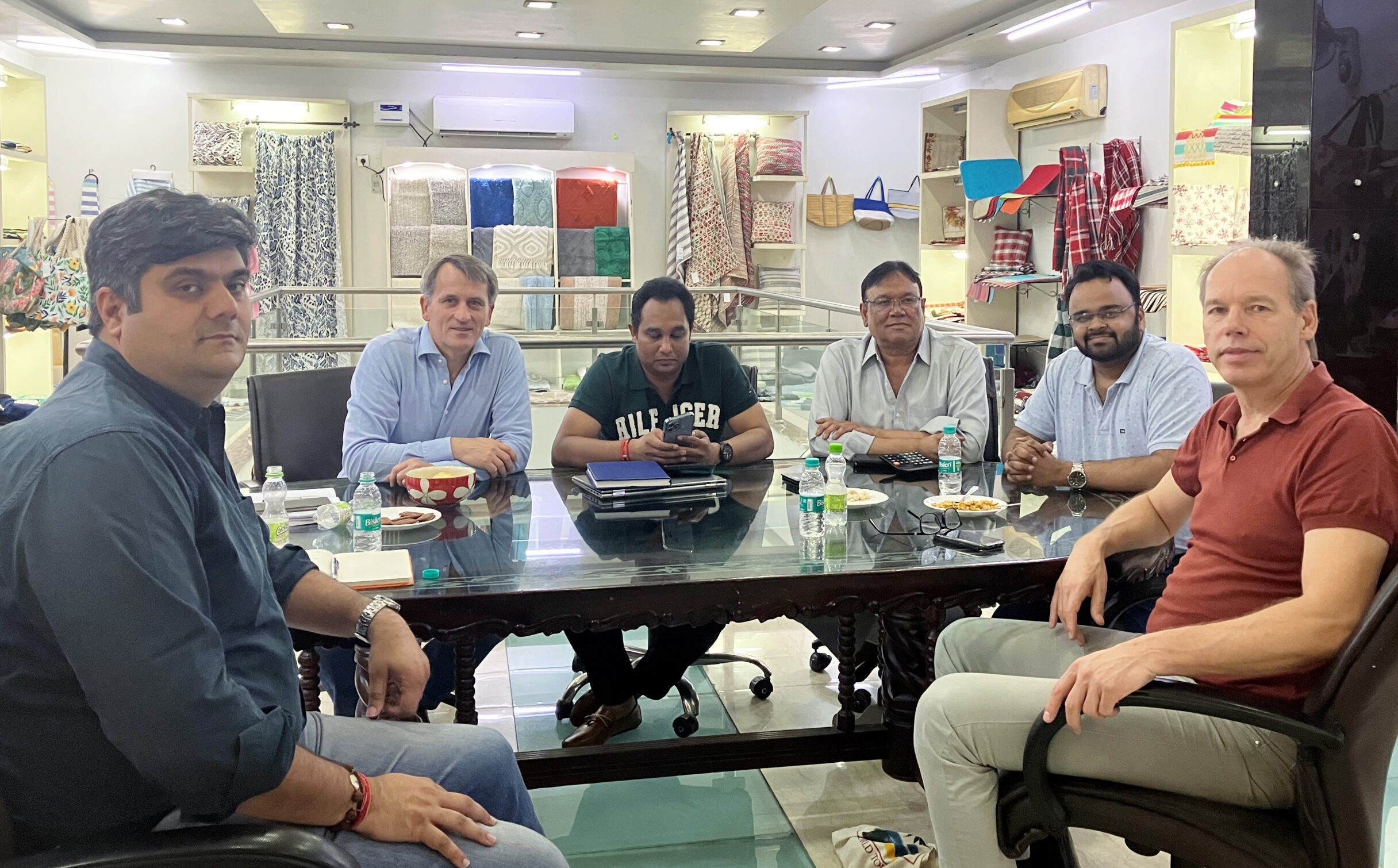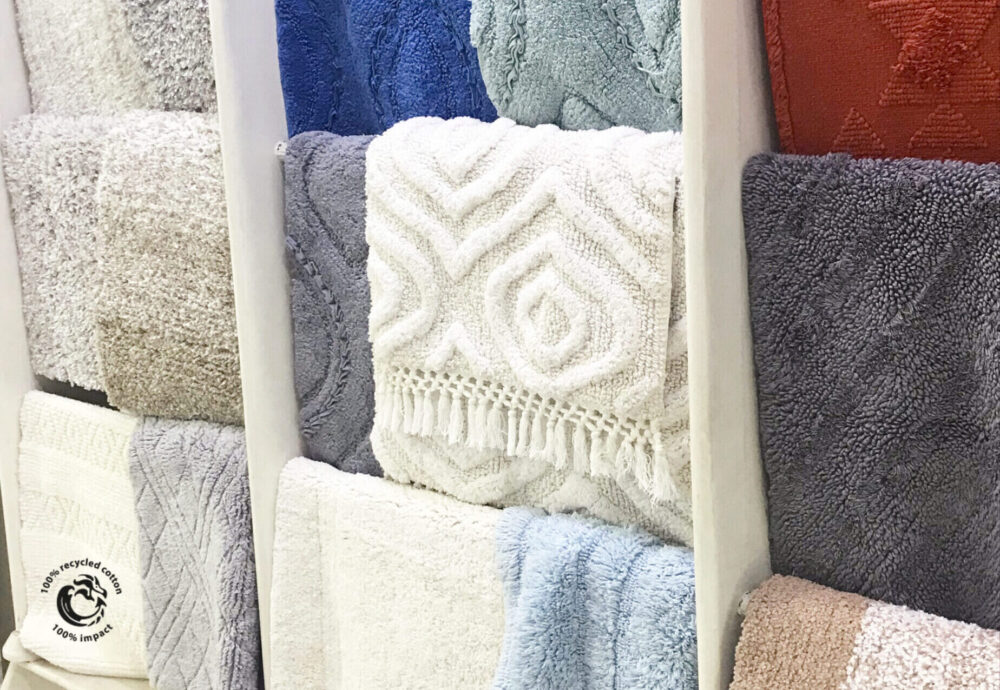To guarantee the seamless handling and quality of our products, for Léon and Jos the month of November starts with a field visit to the Indian partners in our international Dragon network. By personal visits existing relationships are strengthened and new ones built. This ensures smooth delivery to our new retail clients in Europe.
Responsible supply chain management is at the core of what we do at nxtile. That’s why we are currently visiting the Indian partners in our international Dragon network together with nxtile’s India manager. Our road trip takes us from Delhi, where our local office is situated, to the north-western state of Haryana, Punjab and further south to Tamil Nadu.
In these regions we visit our production and recycling partners, who each specialize in key activities within our value chain: from collecting to sorting textile waste, to spinning, processing, and producing new quality items.
Delivering excellence to new clients
Our work visit to India allows us to personally coordinate the handling of several new orders that have been placed, from waste to finished product. Prior to expanding our product range, we always first visit the local factories where these new textile items are made. This way, we can guarantee excellent product quality and transparency of our processes to the top retailers we have recently welcomed as new clients.
Committing to our responsible business practices
This field trip to India gives us the opportunity to deepen our relationships with the factory owners and staff we have been working with so far. Always keen on expanding our impact, we also reach out to new recycling and production partners to join our international Dragon network. To do so, they subscribe to nxtile’s circular mission and organizational values, committing to our planet and people friendly ways of working.

Enhanced sustainability practices
Since our trip to India last year, it clearly shows our Dragon partners have picked up our sustainability principles. This has fuelled many positive developments, such as increased use of solar panels as energy source and more sustainable packing material.
Despite global instabilities, the Indian population is showing ability to quickly adapt to world-wide fluctuation in demand. The recent floods and droughts in the country have further strengthened support for more sustainable ways of operating.
All this creates an enabling environment for a more circular textile industry in India. And this, in turn, feeds into the transformation of the sector globally, bringing a 100% circular textile industry yet another step closer.

